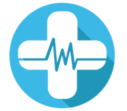Substance Abuse
Substance abuse is when you become addicted to something that has serious health risks attached to it, such as cigarettes, alcohol or drugs.
It is a complex issue that has both psychological and physical causes. It requires professional treatment, which needs to be carefully administered.
Symptoms
There are several markers and signs that a person displays with substance misuse. Although each substance has its own unique effect, there are some universal signs that are common with most substance abuse.
Most common signs include:
Behavioural
- An obvious difference in behaviour
- Altered sleeping patterns
- No longer interested in personal hobbies
- Lack of personal grooming
- Drop in attendance and performance at work or school
- Changes in friends or company
- Unexplained financial problems
Physical
- Strange smells on breath, body, clothing
- Runny nose
- Red, bloodshot or glazed eyes
- Tremors, slurred speech or poor coordination
- Sudden weight fluctuations
- Tired appearance
Psychological
- Mood swings
- Periods of hyperactivity or agitation
- Lack of interest in family or friends
- Lack of motivation, appearing spaced out and lethargic
- Fearful, anxious or paranoid without cause
Causes
Substance abuse is used as a coping mechanism to deal with certain situations in life. It is a way for users to relax, and feel better about the situation they are dealing with.
As the habit continues, serious effects start to impact all aspects of their life. If the substances used are illegal, then they may find themselves in trouble with the law.
Those feeling depressed, anxious or angry as they use these substances will usually continue to feel this way when the effects wear off. This leads to a cycle of behaviour that is hard to resolve.
Treatment
If you feel like you or someone close to you suffers from substance abuse, come and see your Ahmeys healthcare professional. We understand that treatment is long-term as addiction is a chronic illness. Together, we can tailor a treatment plan based on your individual needs and goals to treat your medical, mental and social difficulties.
Common lines of treatment include:
- Detox :It is important to clear all substances from your body. This is usually required to be done in a controlled environment under supervision to ensure the safety of the patient. Detox can be a slow process, which is necessary to allow your body to adjust to the change. You may have to continue taking a reduced amount of the drug in question so your body can regulate safely.
- Treatment of withdrawal : Common symptoms of withdrawal include fatigue, depression and sleep difficulties. Ahmeys may prescribe medication to help reduce these effects.
- Behavioural therapy : This is to be done in conjunction with detoxing as this kind of therapy helps to maintain your sobriety. Learning different ways to think and cope with cravings means you are less likely to experience a relapse.





